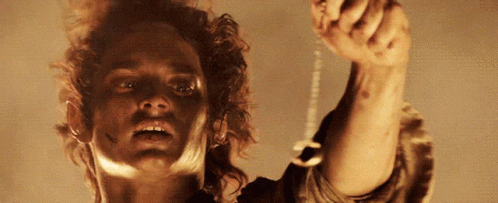By Jodi Clark
So, you’ve finally gotten ready to put your story idea on paper. Whether your idea is still vague or is highly detailed, at some point you’ll need to start thinking about your character arc. Without any character arc, stories can end up being bland, the equivalent of an action movie heavy on explosions but with no characters to care about. With weak character arcs, stories can end up feeling watered down and can leave the reader feeling at best emotionless and at worst disappointed with the way your story is told.
Being a pantser myself, I usually start thinking about character arcs at the end of a story, when I’ve explored the first draft and found out where I’ve been going with the idea the whole time I’ve been typing. However, you can start thinking about your hero’s character arc at any stage during your writing process.
Now is as good a time as any to give you some ideas on how to figure out what character arc would be best for your particular story, so take a seat and let’s dive right in.
Start with a Character
One of my favorite things to do is to start with a character and let them lead me through the story. I tend to take a look at the basics of the character—who are they? What are their most basic personality traits? And how did they get those traits? Then, through exploring those characters’ traits, I get to know more about them and their story. Once I know enough about a character, I can tell what they’re going to need to learn.
Starting with a character is a great thing to do, especially if you have a particularly strong personality in mind for your hero. Your hero will be the focus of the story, and their vibrant, gripping personality will intrigue readers and pull them deeper into the story to find out what happens next to your hero during your hero’s adventures.
Think of characters like Tony Stark, Anne Shirley, and Sherlock Holmes. These characters all have strong personalities, so much so that the entire story revolves around them and their choices and transformations. If you are planning a character arc for a character with a strong personality, your first step should be to think of the opposite of what your character’s flaws are. Is your character arrogant, like Tony Stark? If so, their arc should revolve around learning some humility and selflessness.
Start with a Genre
So you’ve got a favorite genre you like to write in, or you’re trying to stretch yourself as a writer and dive into a genre you haven’t done before. Bravo! First, I suggest doing some research about the kinds of character arcs that are common in the genre you’re interested in. This research can be done in the form of reading books in the genre you want to write, reading articles by authors who write in the genre, or doing research through videos on YouTube and watching movies.
Take something like The Lord of the Rings, for example. The genre is fantasy, and the characters go on a long quest where they go through the hero’s journey, a common arc in fantasy. Typically, the hero’s journey ends up with the hero experiencing positive growth and stepping into a better version of themselves--who they were made to be. And while Aragorn fulfills this part of the hero’s journey, going from Strider the isolated Ranger to King Aragorn and stepping into his role as king of Gondor, Frodo actually ends up failing and succumbing to the pull of the Ring.
Source: Tenor
In your case, if you start with a genre like fantasy, your character’s arc might typically revolve around the desire for adventure and heroism, for a chance to shine and be a great hero on their own. Their arc may involve learning that battles and courageous acts require far more than they seem, and that being a hero involves letting others help you, working alongside others, and humbling yourself.
Your Turn
Start with a Plot
If you already have a plot in mind, congratulations! If you know the twists and turns your story is going to take, if you already know how you want the story to begin and end, or even if you only have a few basic ideas for pivotal moments in the plot, you can get started thinking of the character you want to put in those scenes to bring those scenes to life.
Every scene is like a mini story, with a beginning, middle, and end. You need the kind of character who will take up space in the scenes, like a good actor, and who will provide the emotional pull for your audience to become even more interested in following your logical, twisty-turny plot from the beginning, through the middle, and all the way to the end.
When you’re thinking about your plot, think about the kind of character who could inhabit it. If you know your plot revolves around choices to pursue revenge, then think of a character who would want to pursue that. Then, think of how you could use the plot points in the story, as well as the other characters, to help guide your hero toward realizing that revenge is not the answer.
Start with a Theme
While I do suggest being careful with this one, since trying to tie in your whole story too tightly with a theme could make your tale end up being preachy, I do think that this can be a good place to start when looking to develop character arcs.
Consider the theme of your story. Is it forgiveness? About second chances? In this case, a redemption arc might be called for. Is your theme about the power of friendship, or family relationships? A positive, growth-oriented arc might be your best bet to show your hero emerging from darkness and stepping into the light of loving relationships with the people they care about most.
If you’re working with the theme of forgiveness, for example, take it a step further and think about what kind of person would need to learn the importance of forgiveness. Think about the kind of people who could help your hero along on their journey of learning about forgiveness, and think of the kind of situations your hero would need to be put in, as well as the choices they would need to make. You could brainstorm ideas about why your hero needs to learn to forgive, or why they need to learn the importance of being forgiven.
So, what now?
Learning what character arc is right for your story is all about asking questions. Why does this character think this way? What made them begin to think this way in the first place? What lie does this character believe? What situations will push this character to overcome their fears?
Be curious. Get to know your character like a real person. Maybe even keep a journal where you write in your character’s voice to get to know their story, what they want, their dreams, their goals, and their fears. Maybe write interviews where you ask your character questions about themselves.
Remember, you can start working on developing a character arc for your hero or heroes by:
I hope that these tips have been helpful for you today! I’d love to know more about what you think of creating character arcs.
What are your favorite ways to develop character arcs in your stories? What are your favorite character arcs in fiction?
Jodi Clark
Jodi Clark is a writer and college student from Central Oregon, where she has lived for fifteen years. At college, she is studying for her BA in English along with a minor in history.
She has worked with many authors to revise their manuscripts through her job on Fiverr while working on her own various projects. Aside from writing, her hobbies include hiking, photography, and other outdoors activities.






Amazing article, Jodi!! Again!!!! lol <33
Thank you, Ella! 🙂
Awesome article! Usually I start with a character or a scene.
I’m glad you liked it, Keilah! I do the same thing–characters or scene/plot ideas are my favorite place to start from, and then I work from there.
How cool! Thank you!
Hi Jodi! Thank you for the article!
I usually come up with a character and some sort of change I want him to undergo, but I typically struggle with figuring out how to get him to the end of the arc.
Hi! You’re so welcome. I also struggle at times with figuring out how to get a character from point A to B in their arc. But we have another article coming out this month that takes a deeper look at how to implement several different kinds of character arcs once you decide which one you want to use, so I think you’ll find that helpful!